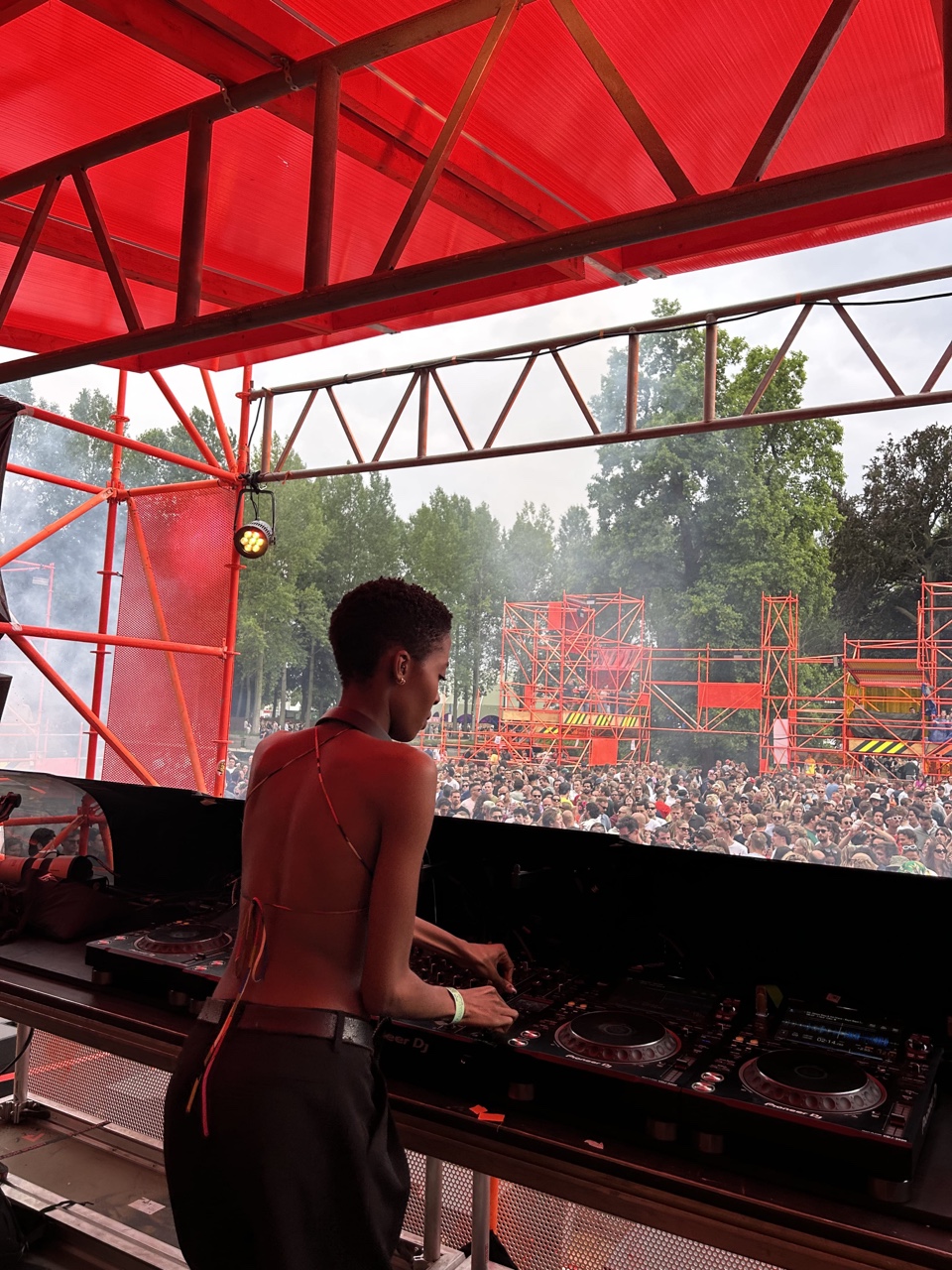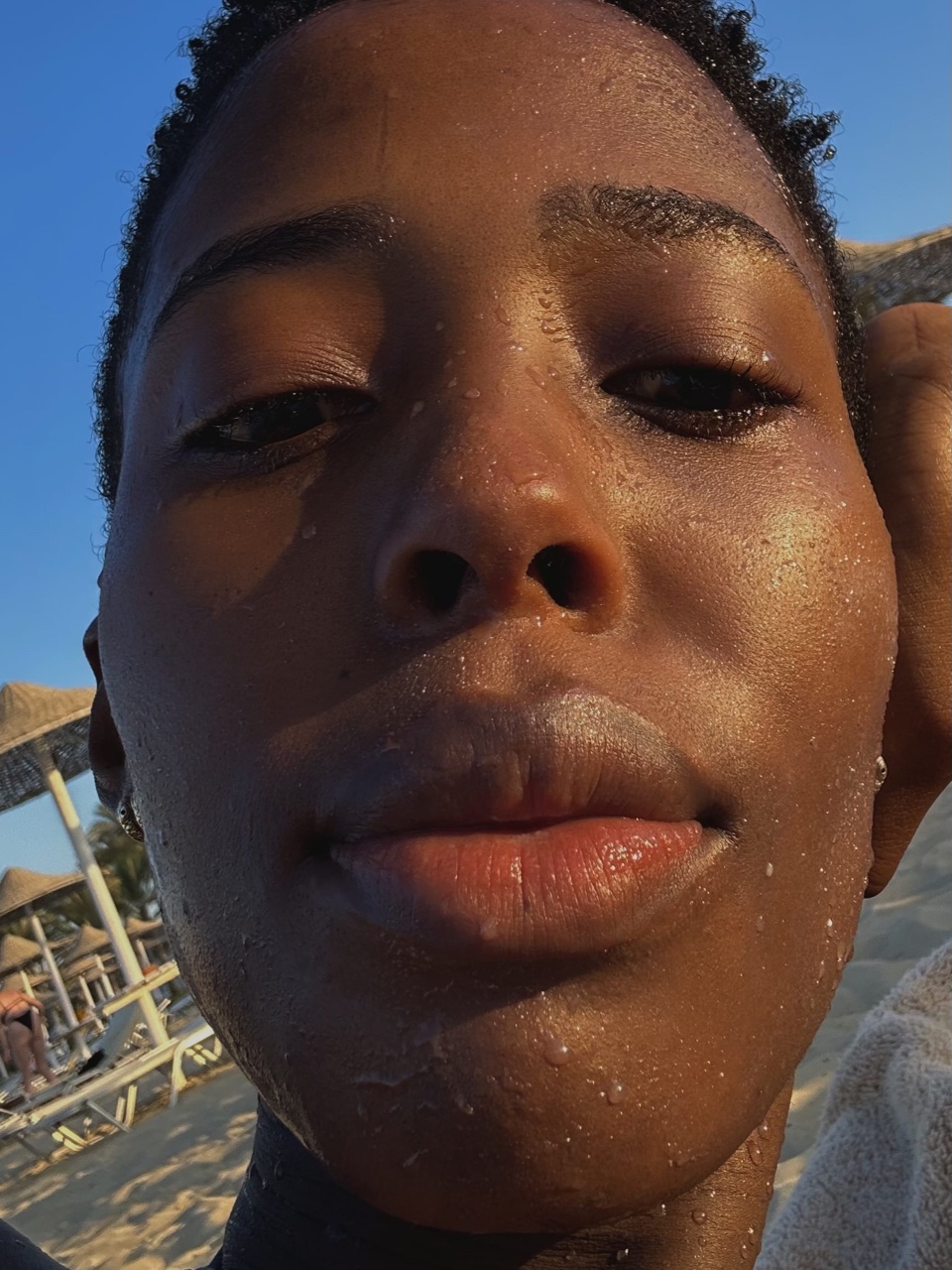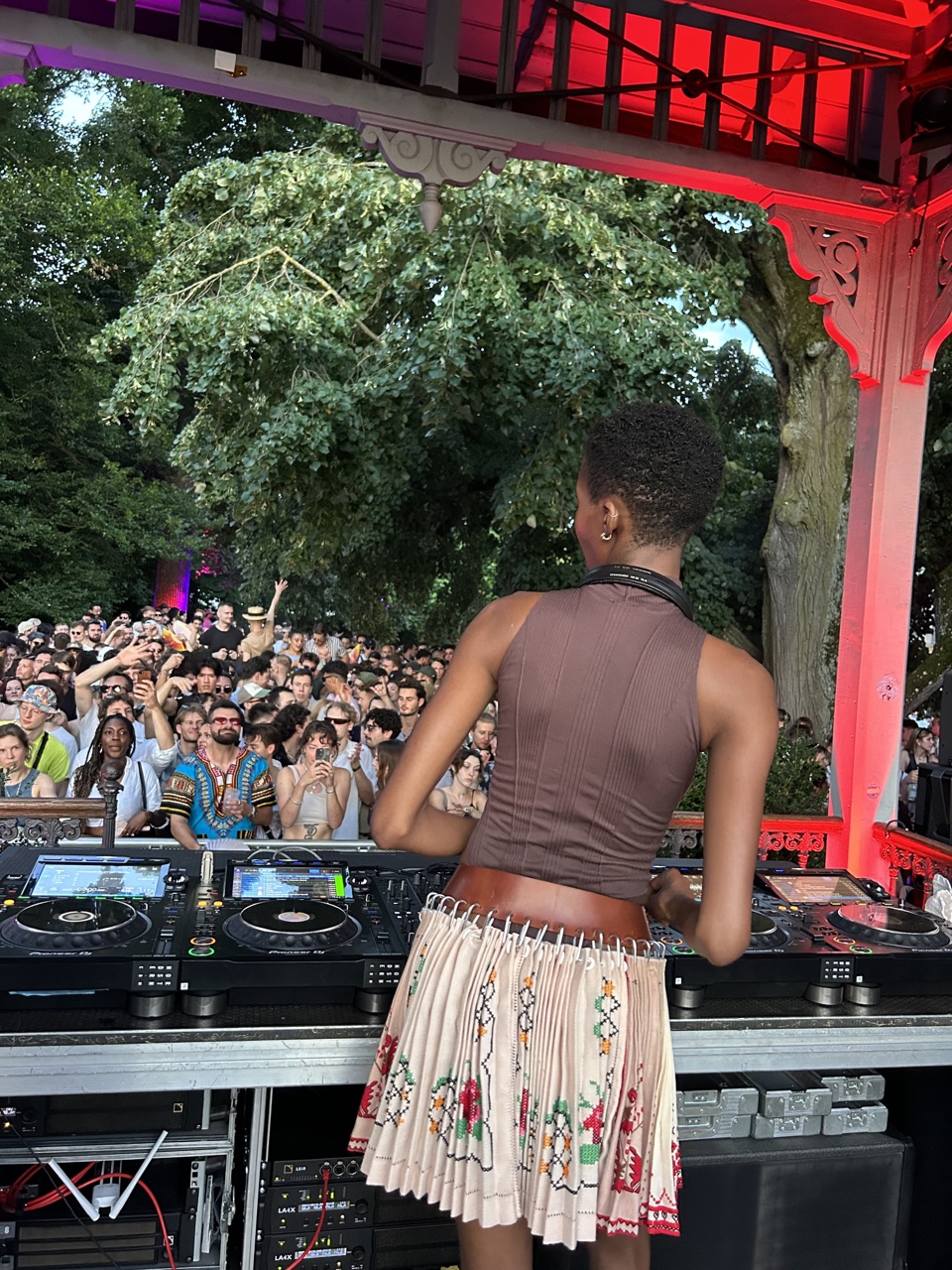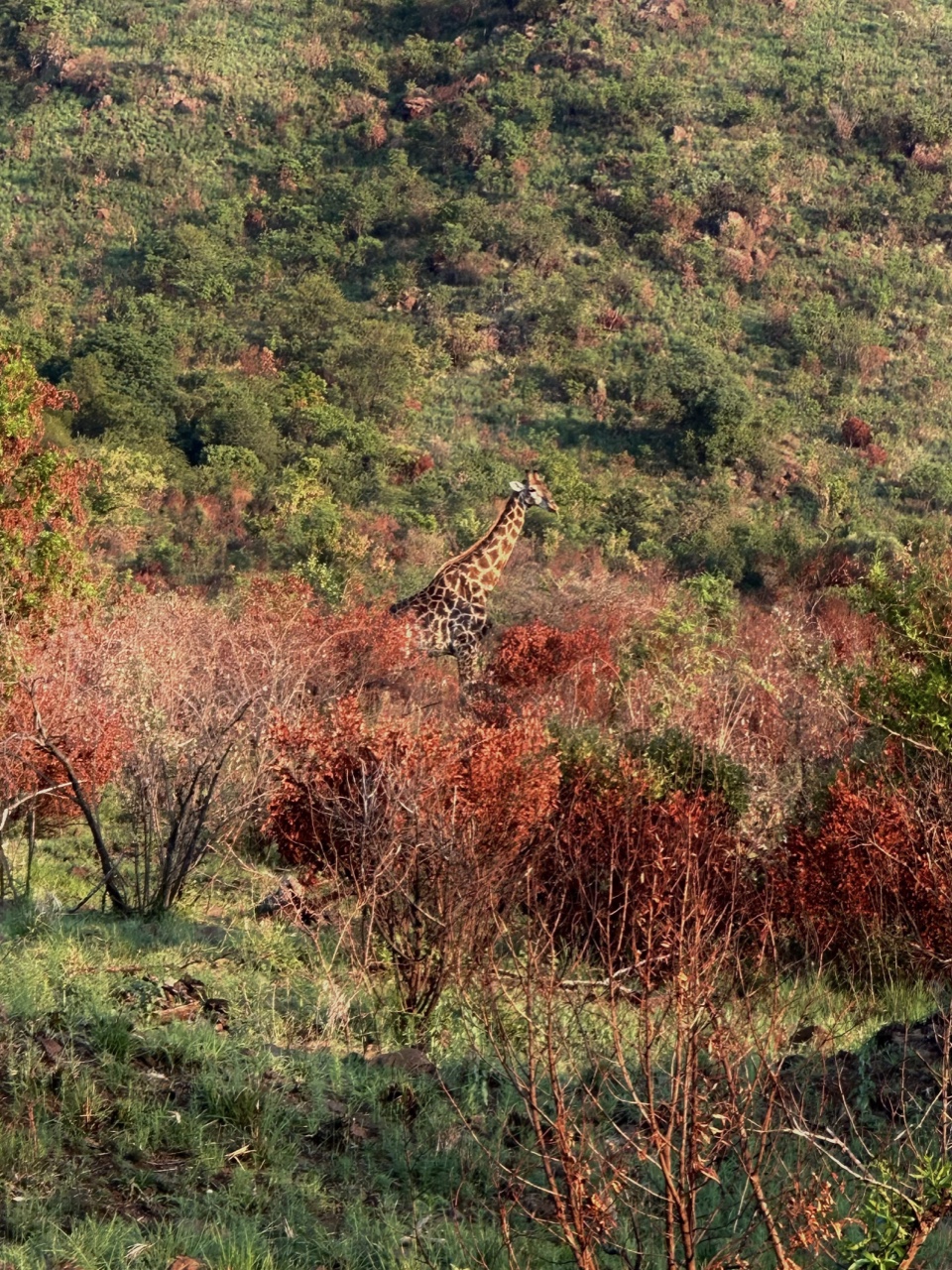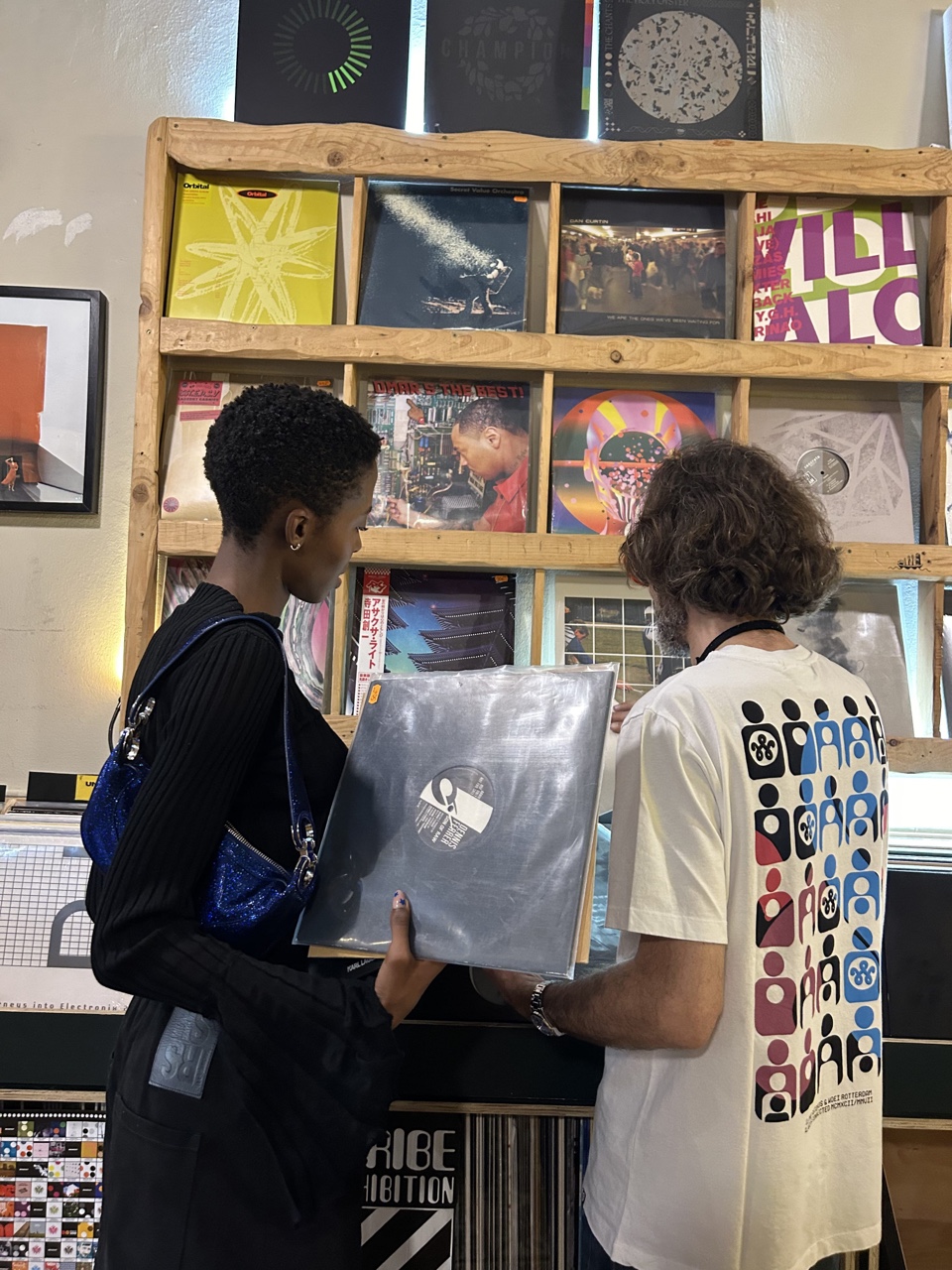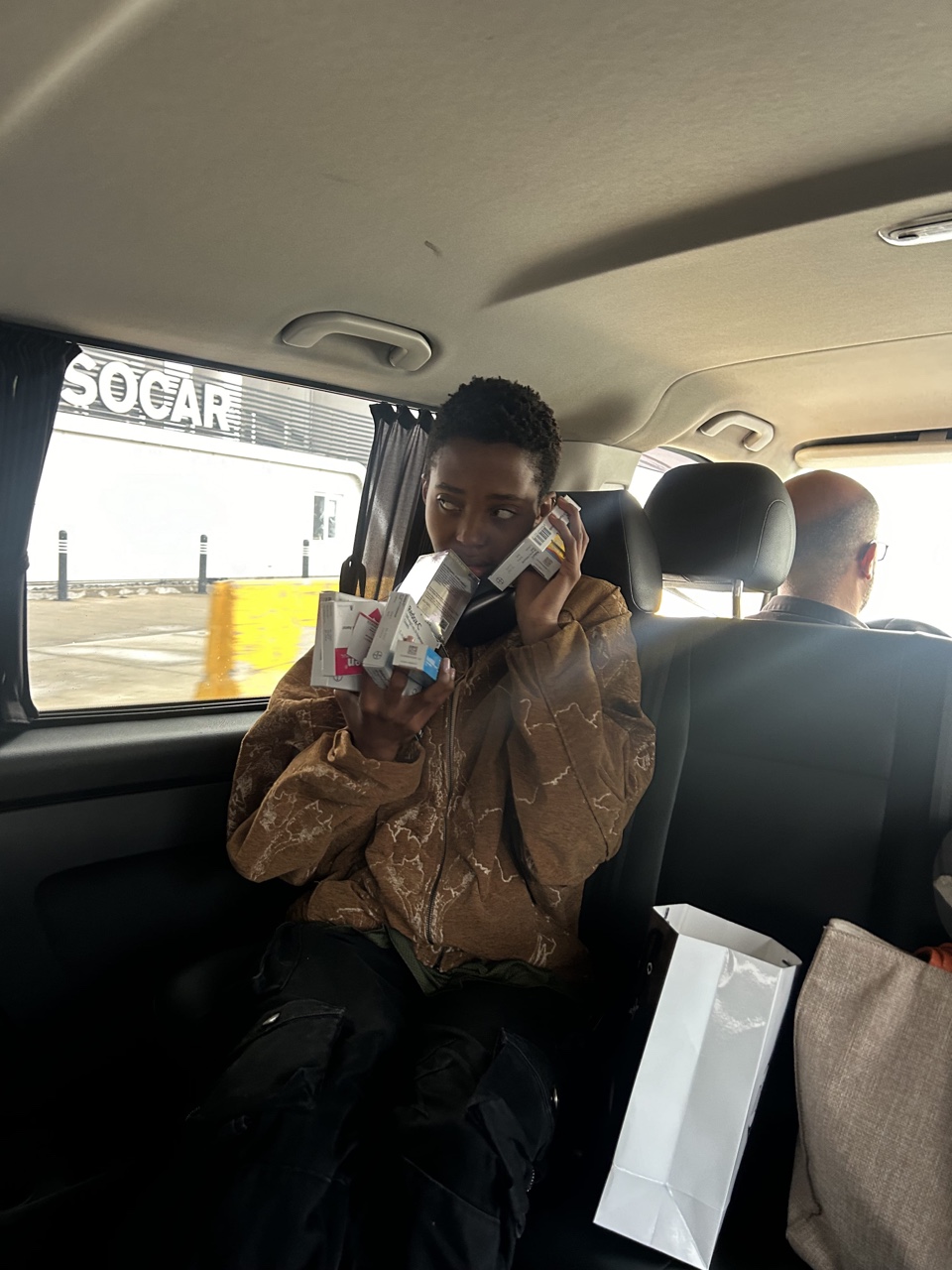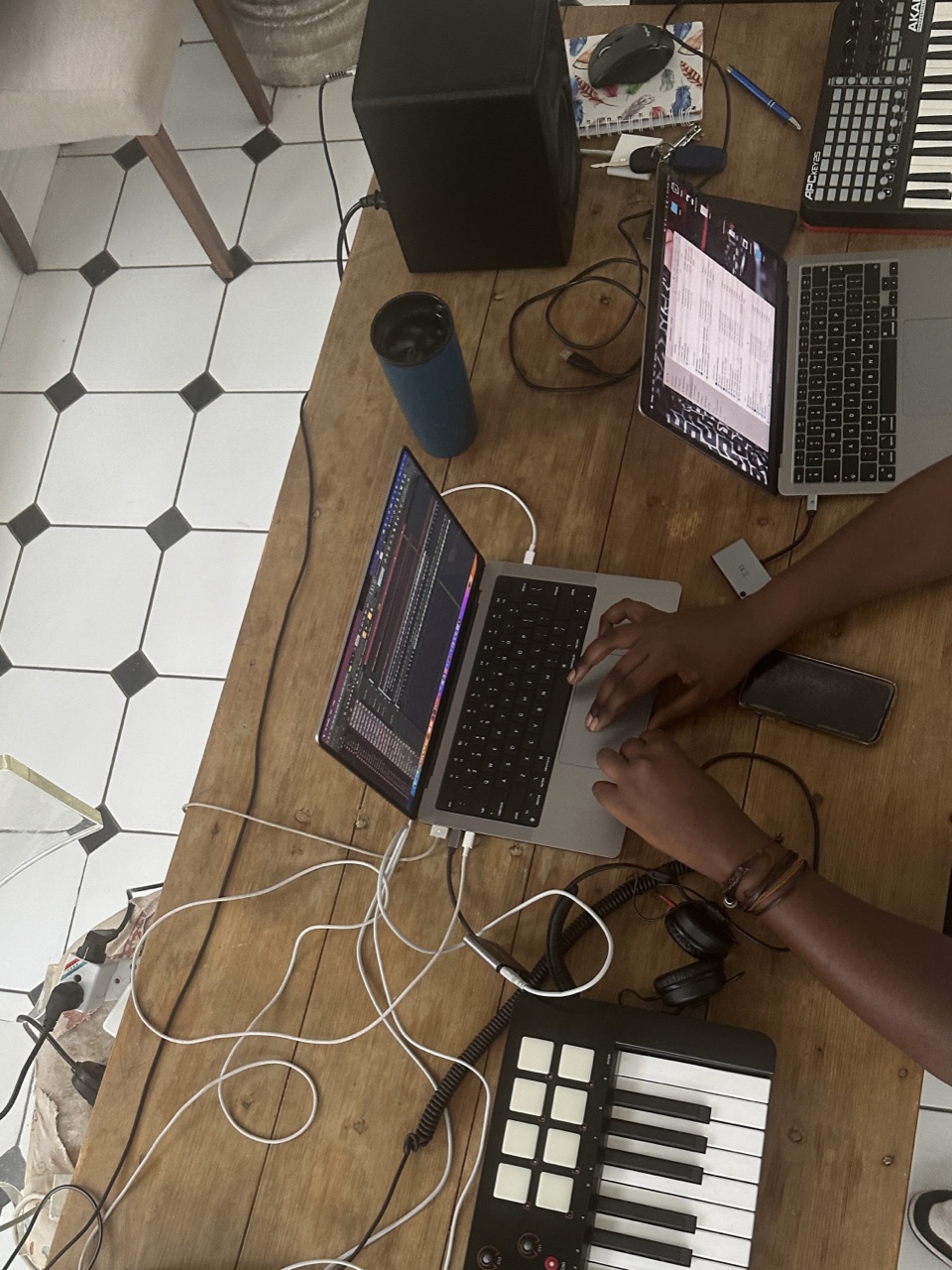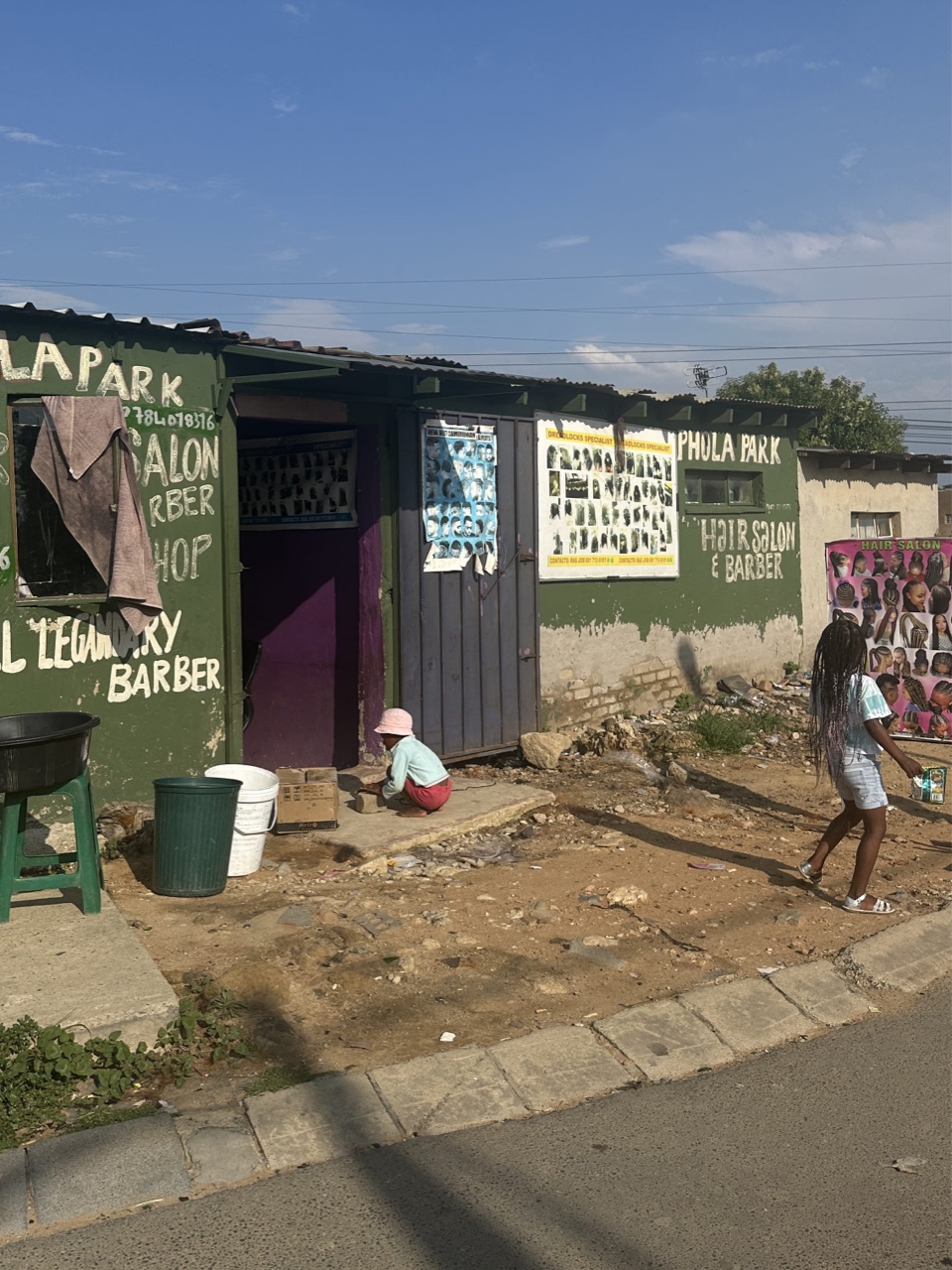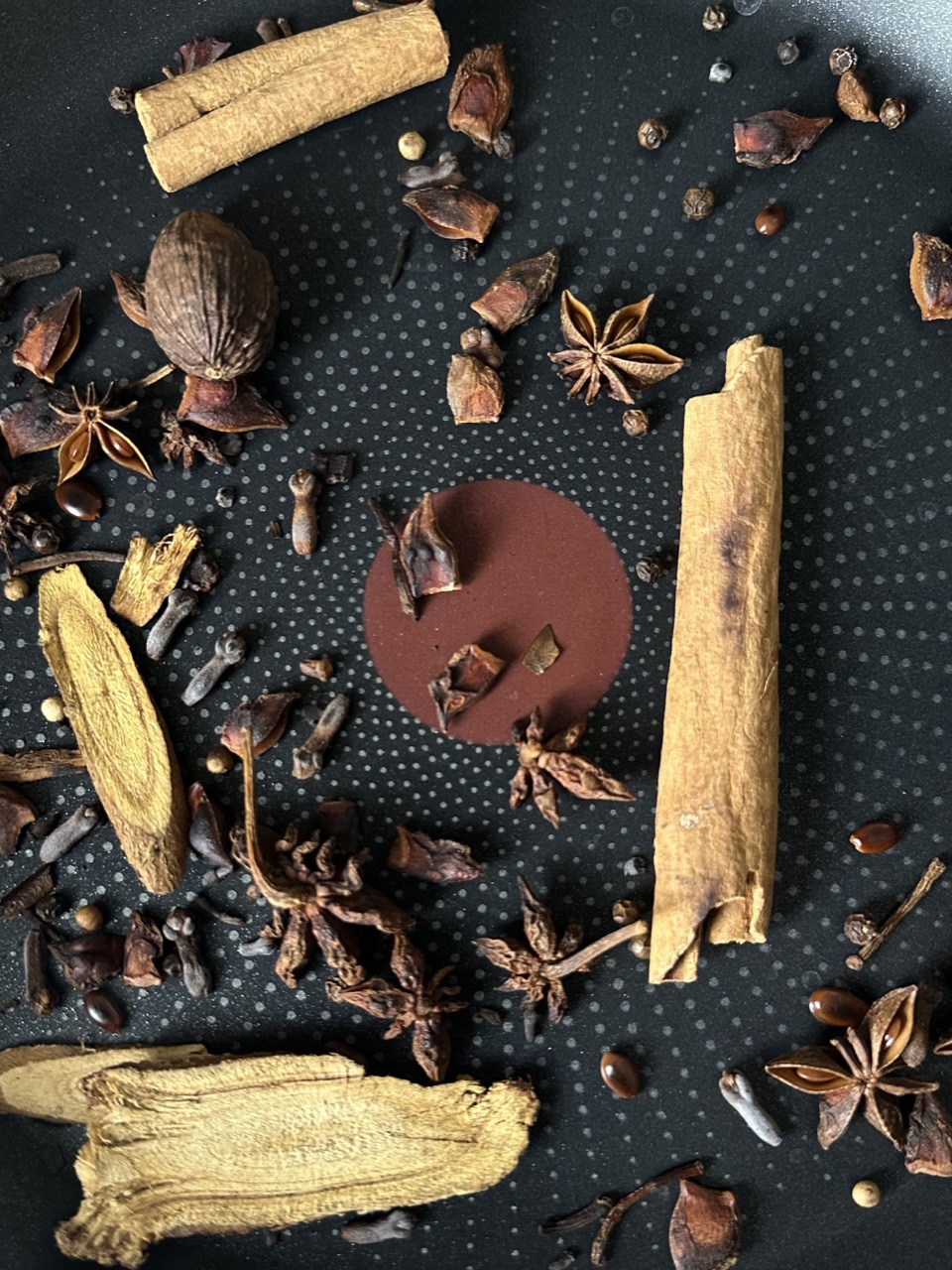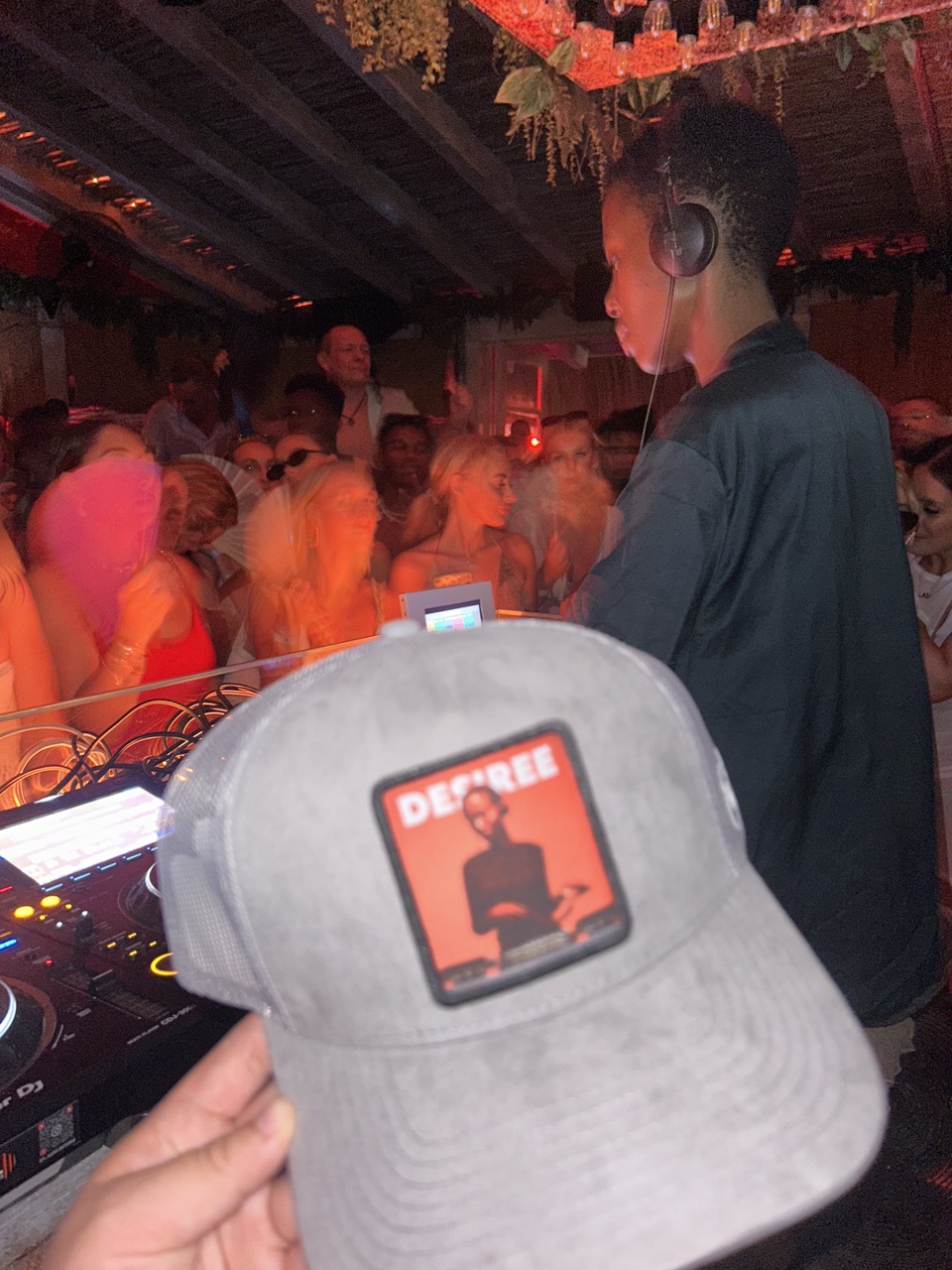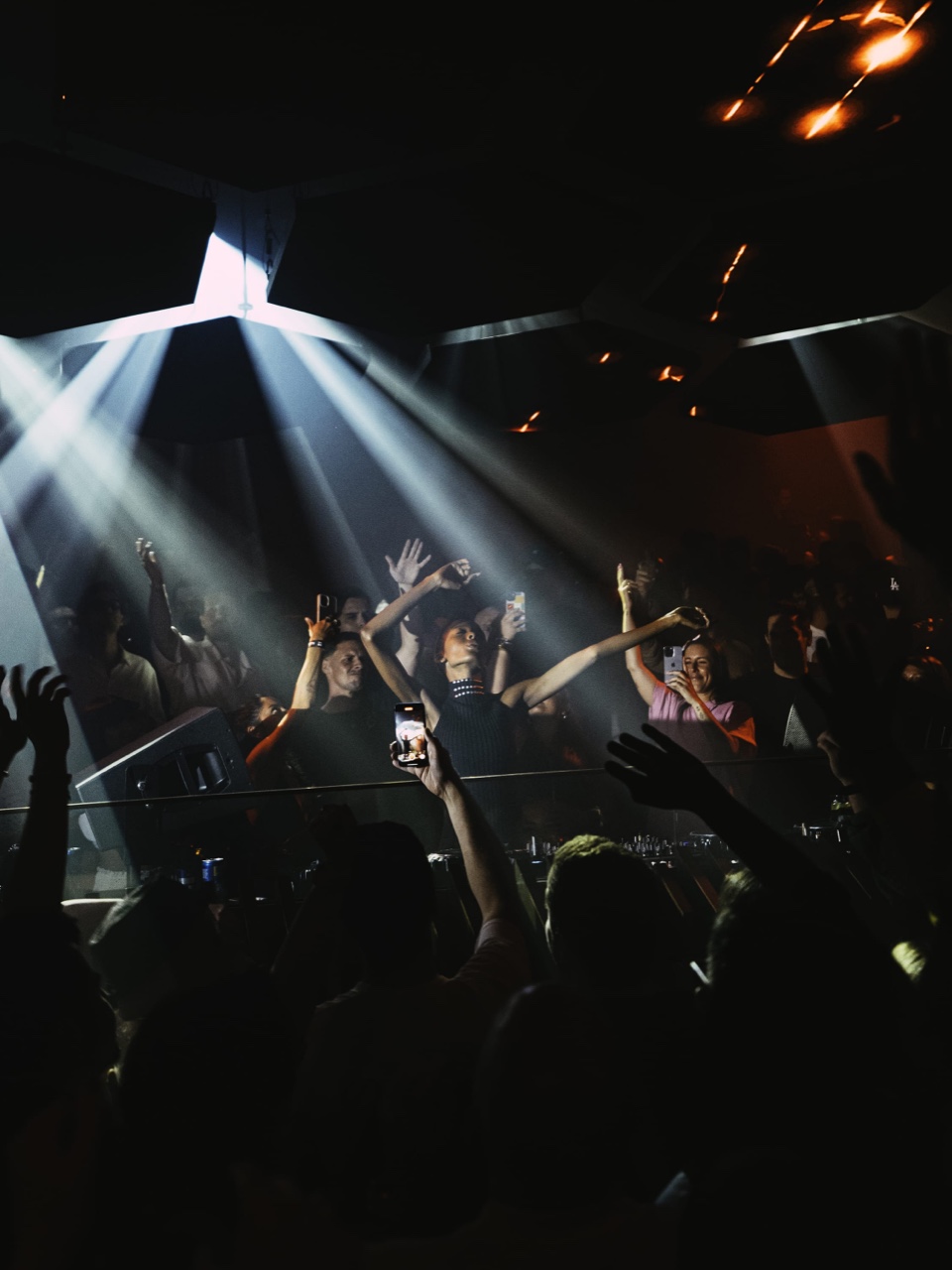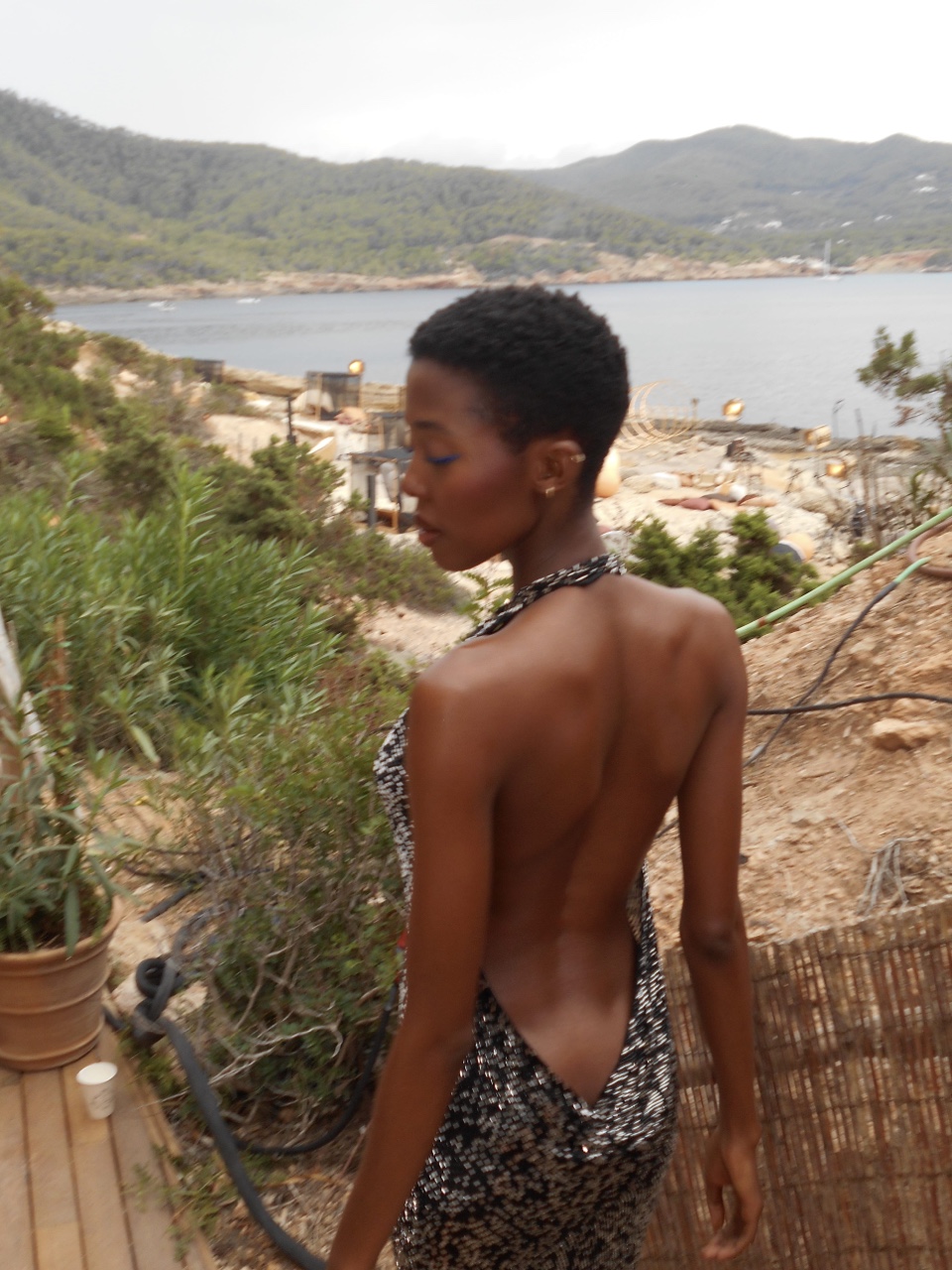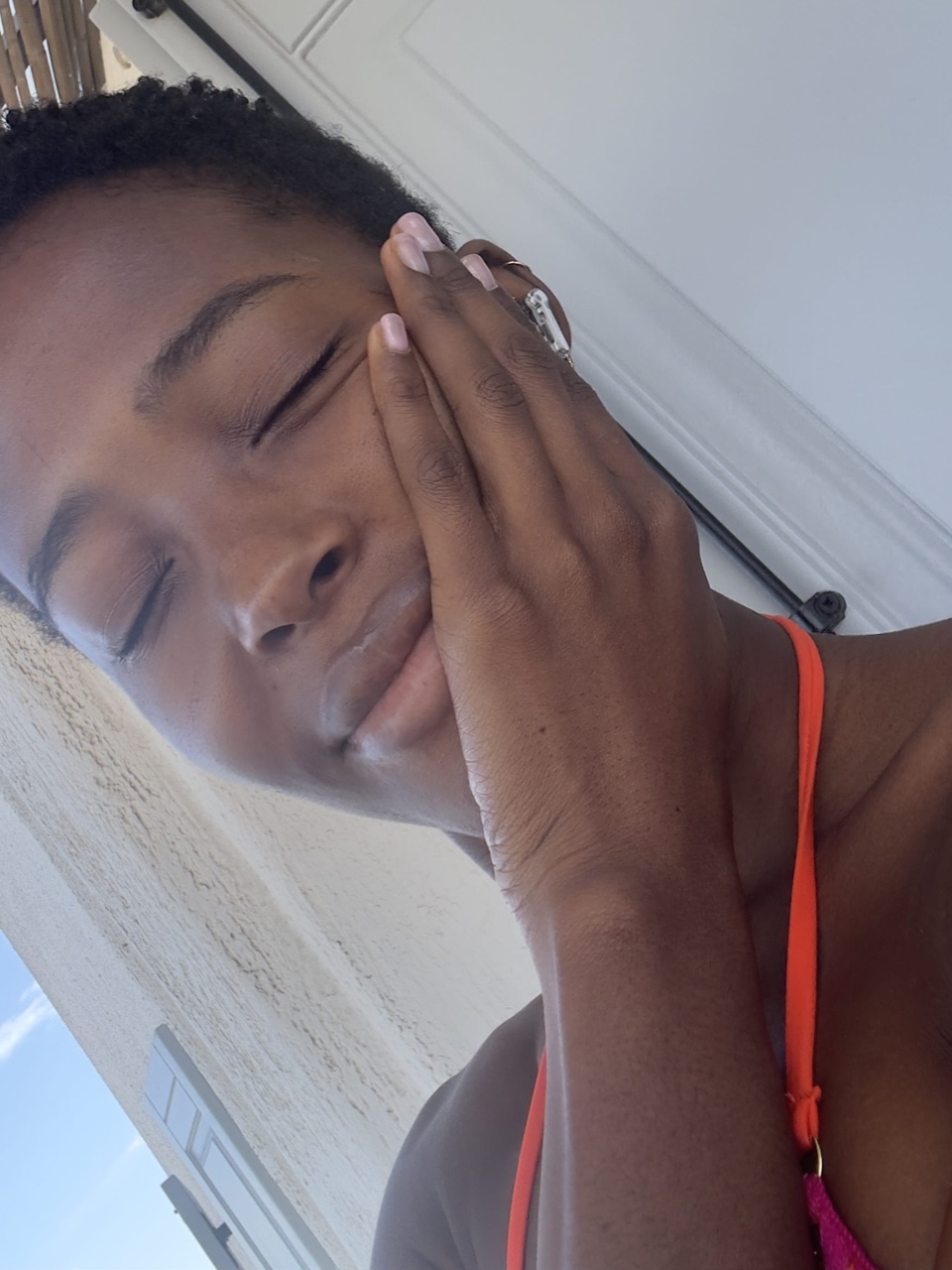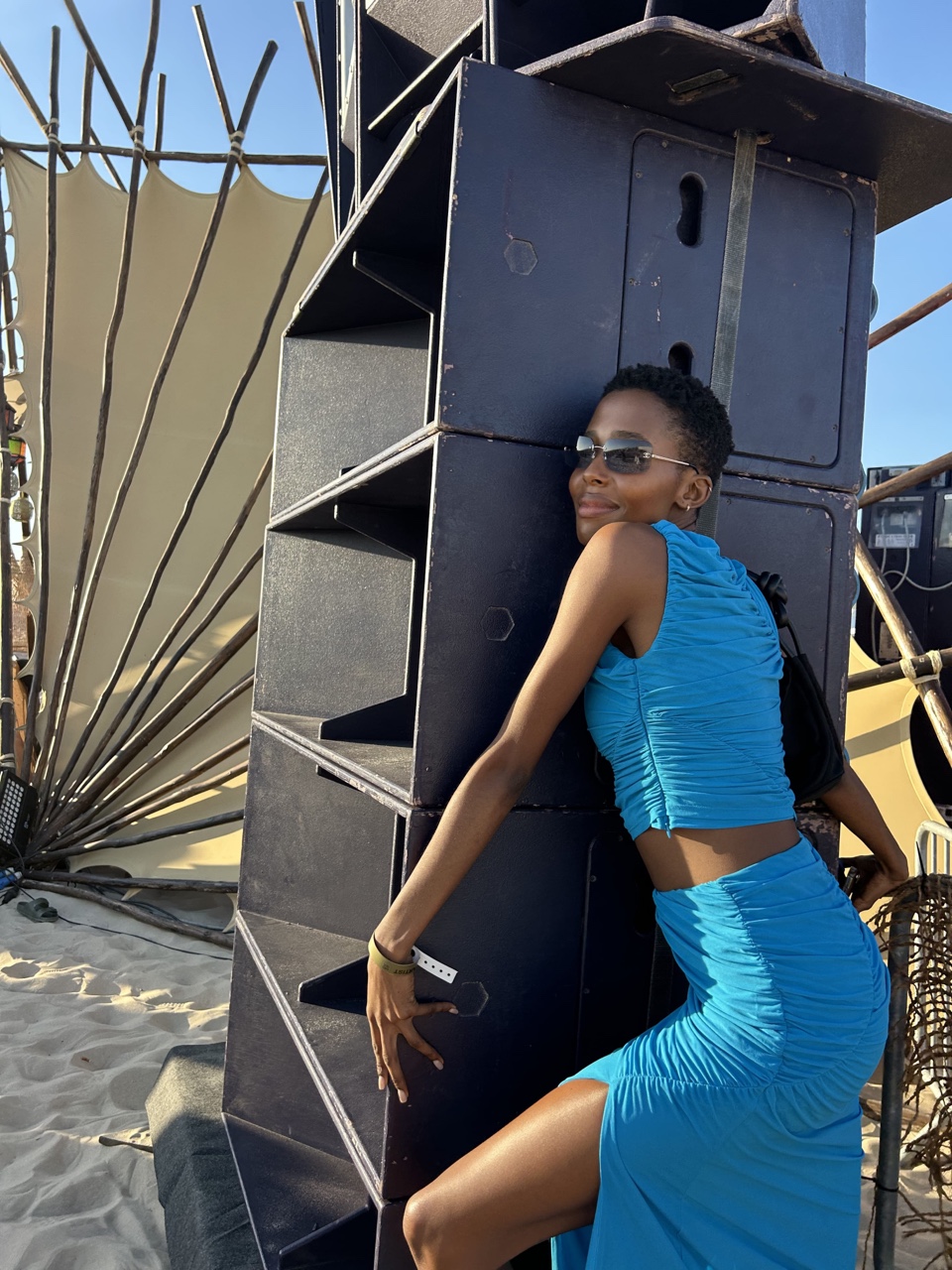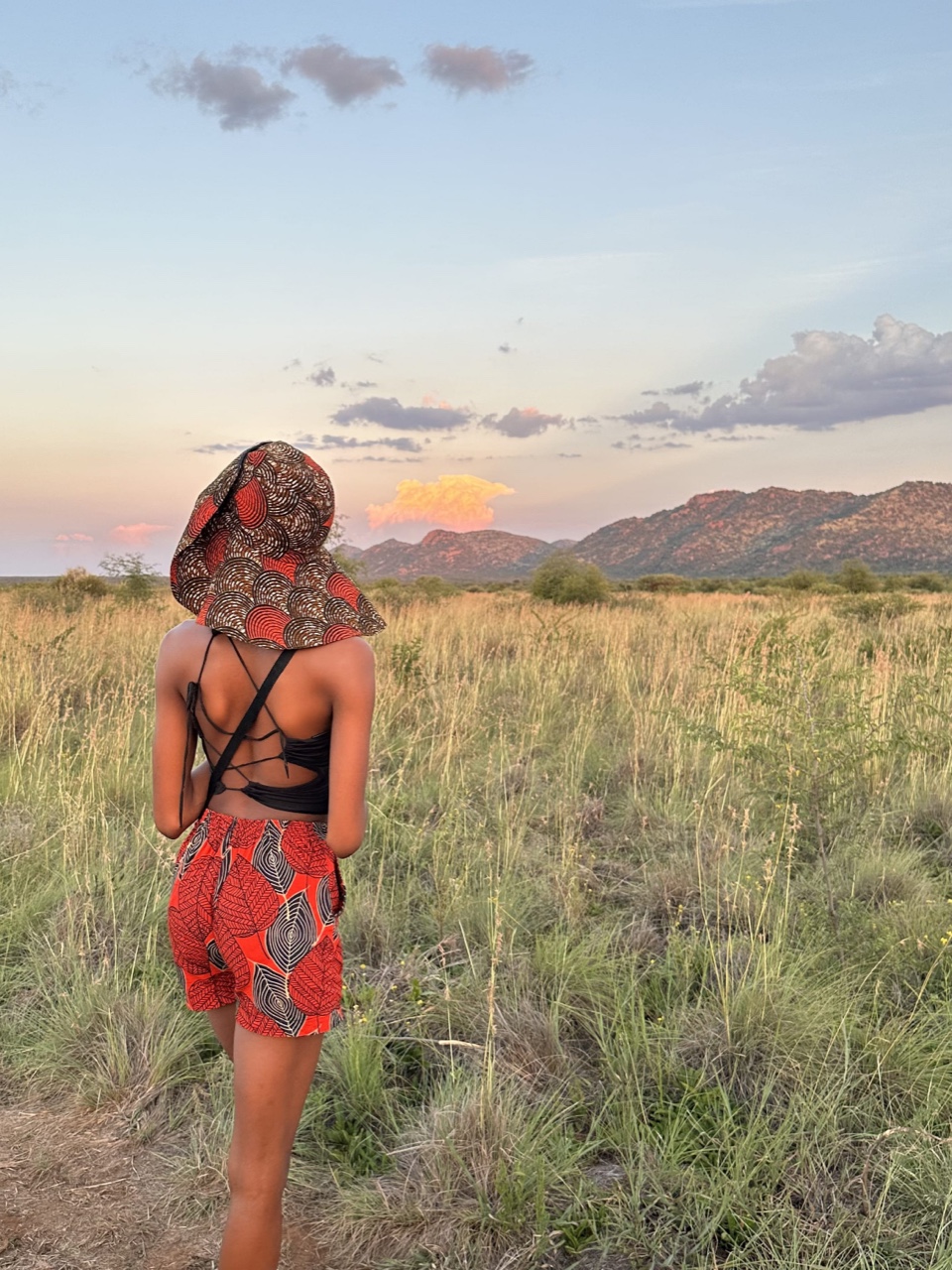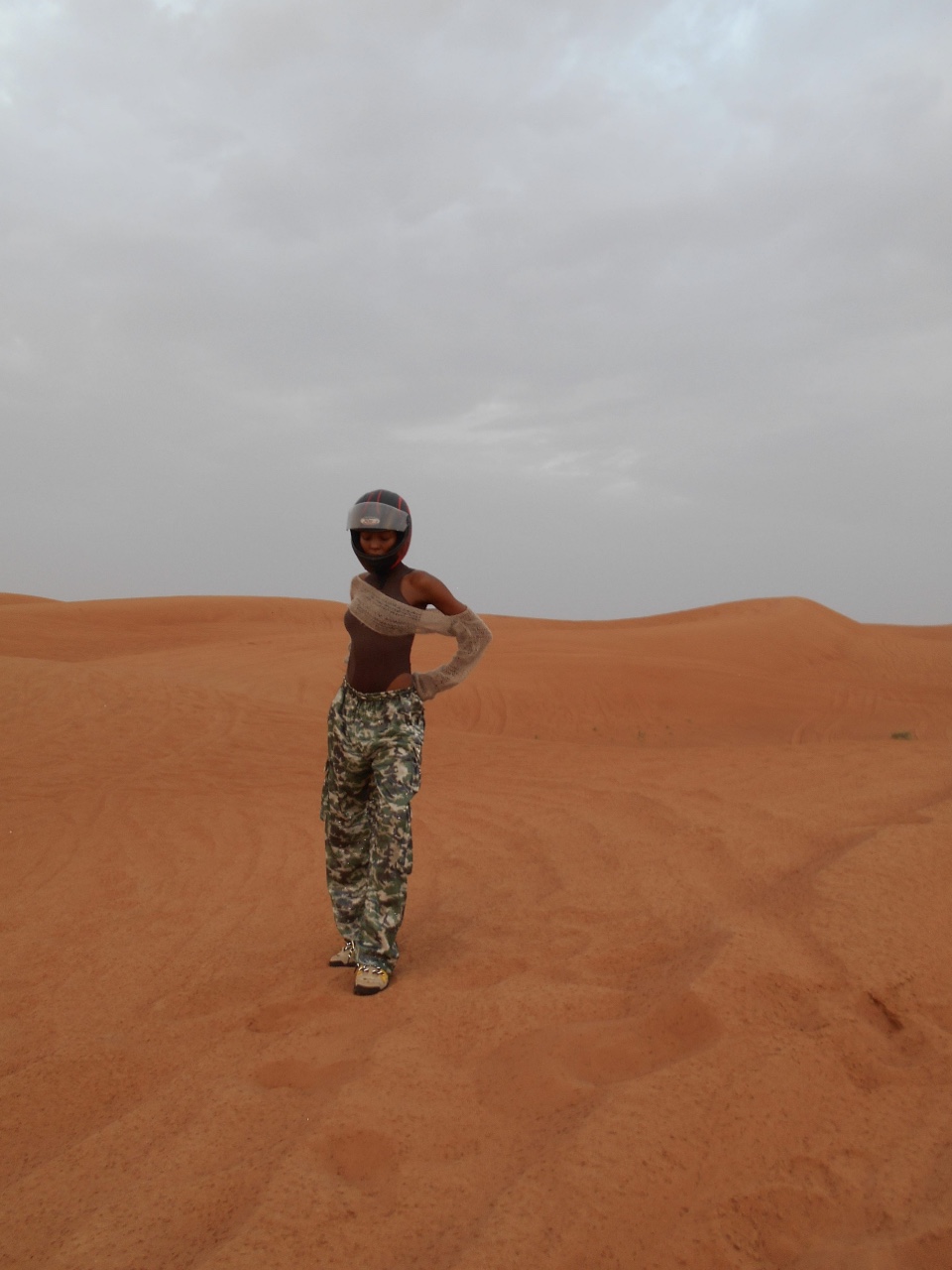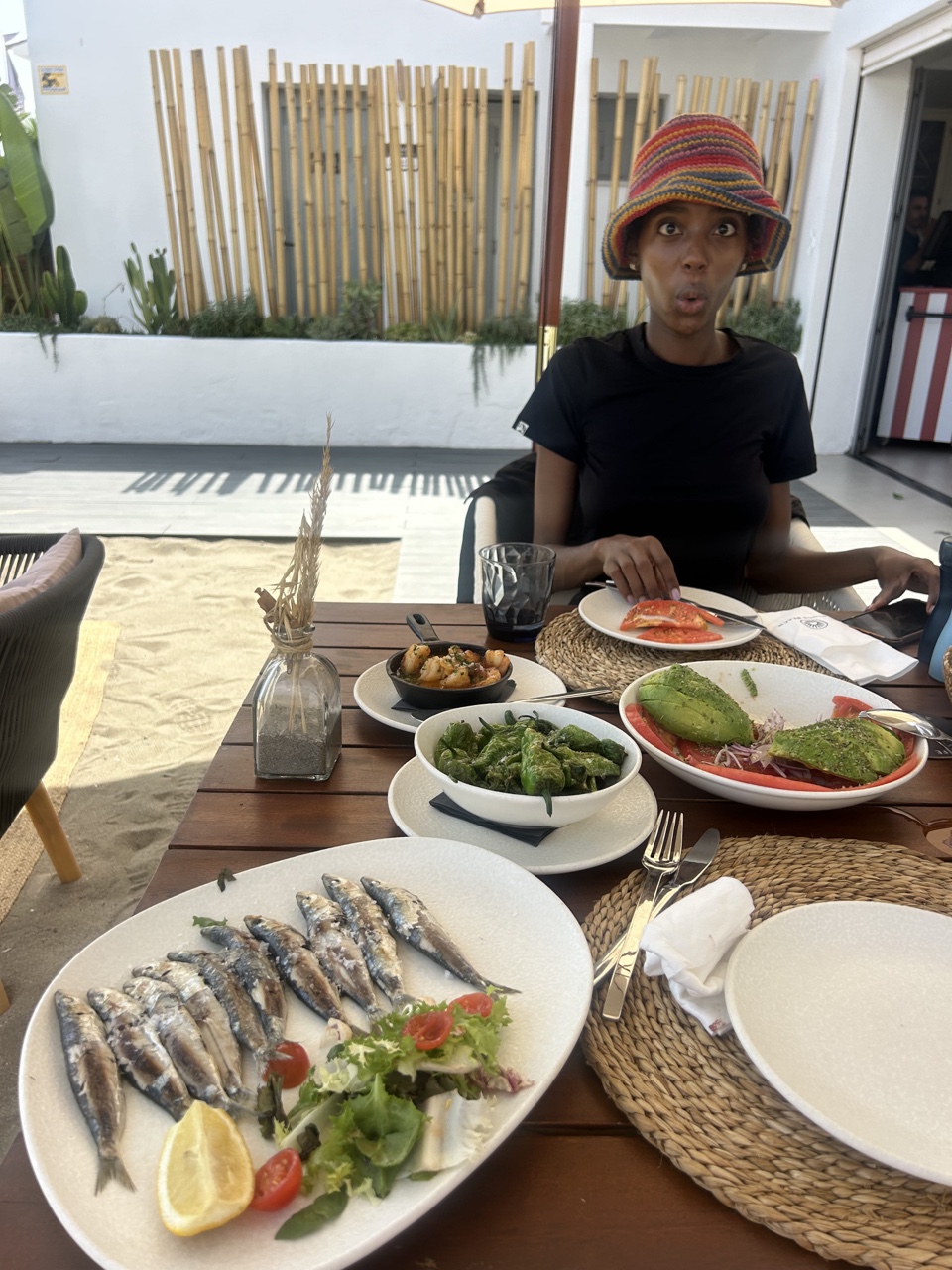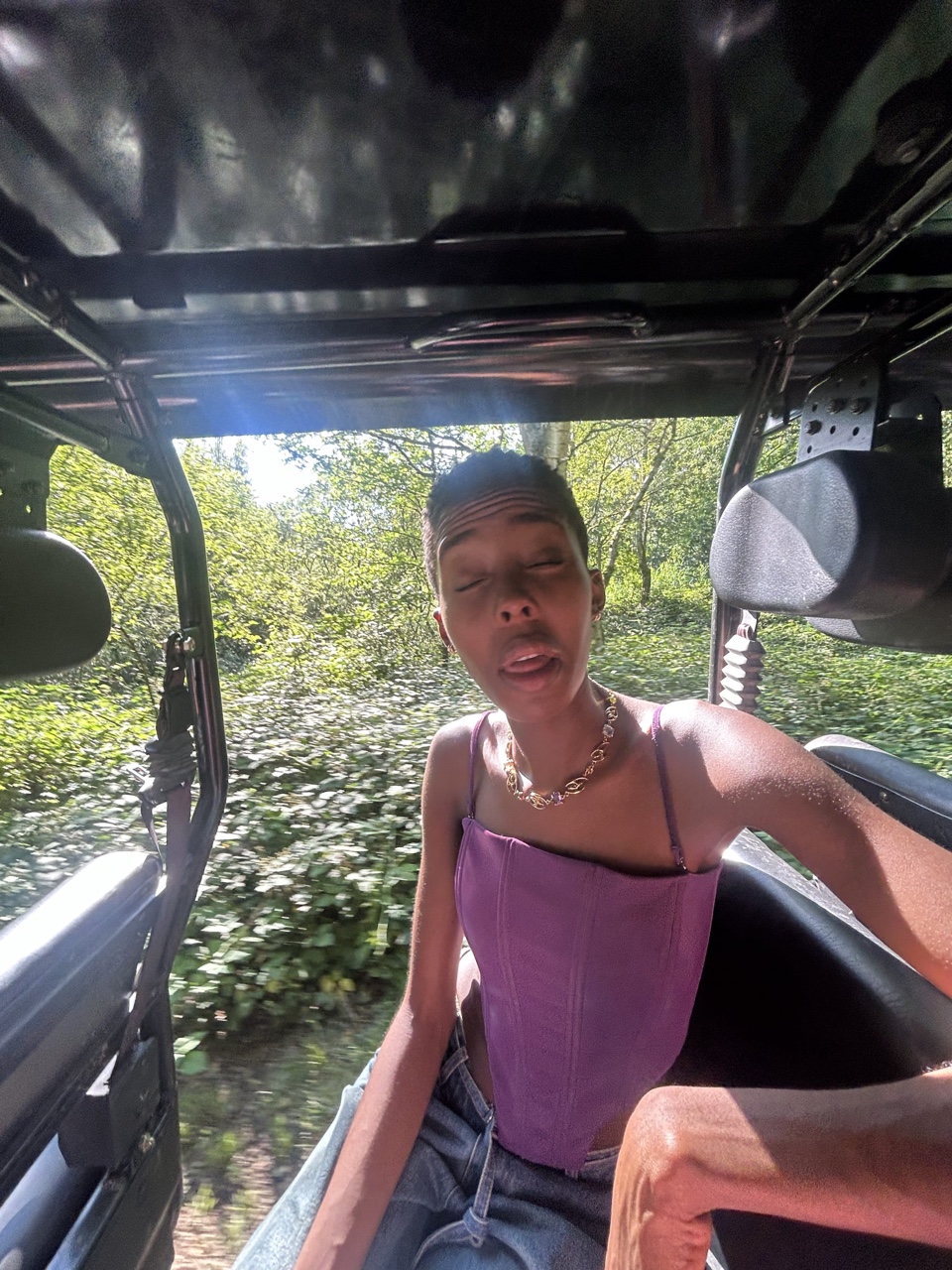
DESIREE keeps pushing to tell her truth
With her two track EP “INTERSEXY”, the South African DJ and producer shows the world how sexy it is to not always fit in.
Text: Juule Kay
DESIREE (pronounced Dez-Ir-Ray) is a curious one, always eager to dig for music or learn something new about the world. The South African DJ and producer studied philosophy, politics and economics before electronic music entered the frame – and took her heart by storm. Over the last seven years, Palesa Desiree Shilabje established a distinctive sound with an unexpected twist, experimenting with different genres such as house and techno with a deep African groove. Whatever DESIREE is captured by in life, it’s most likely ending up in her emotive yet high-energy soundscape in some way or another.
No matter what tunes the Joburg native surprises the crowd with, she’s eager to take everyone on a ride by creating an emotional arc. After her first release, FEMME TECH, in 2022, she’s back with her new EP, INTERSEXY, which is deeply inspired by her experiences as an intersex woman in a heteronormative world. Intersex is an umbrella term for people who are born with one or more traits in their chromosomes, genitals, hormones, or internal reproductive organs that fall outside the strict male/female binary. “I decided to share my story as an intersex person for other intersex people worldwide, and for anyone who does not necessarily fit into the stereotypes or boxes that society tries to push us into,” she explains about her deeply personal journey of self-acceptance and empowerment.

Let’s get to know you a bit better. Who’s DESIREE when she’s not behind the decks?
At home [laughs]. I’m a homebody because I’m travelling so much for shows. In my spare time, I just like to do ordinary things, like cook curry, go to the gym, or watch documentaries on Netflix.
You grew up in Johannesburg listening to Radiohead and Nick Cave before discovering electronic music. Tell us about what shaped you and made you not only the person, but also the artist you are today.
I was born and raised in Johannesburg in a township called Ivory Park. There was just this curiosity to find out what’s on the other side of the world, as I wasn’t exposed to these kinds of sounds in my surroundings. I’ve always had this urge to discover new music and introduce it to people. That’s probably why I ended up being a DJ, even though my childhood dream was to become a model. I remember watching all these runway shows and discovering a lot of mind-blowing music. One for the books was definitely the Chanel SS12 show and the moment when Florence Welch from Florence and the Machine popped out of that giant clamp.
Your musical journey also led to MMINO, a curated music platform, which is all about providing a judgement-free dance floor.
I started MMINO out of frustration. People want to hear what they want to hear, and that might just be a song that’s trending on TikTok right now. I wanted to create a space whereby myself and other artists who I invite can build a community of people who are open-minded and present for the sake of music and not the theatrics. Some of my favourite parties are the ones where I felt like I could throw anything at the crowd, and they would welcome it with open arms. At MMINO, I play different stuff because I’m not one-dimensional.
Maybe we're spoiled for choice [...], but it became increasingly difficult to please a crowd.
Do you still remember when you experienced the transformative power of the dance floor for the first time?
Back in my university days, I remember watching a DJ called Da Capo perform at a party. It was this life-changing experience, my aha moment. He’s a very prominent figure in the scene in South Africa, a great producer and most importantly he’s such a great human being, which is rare in the industry. It was a bit of a nostalgic moment with metaphorical fireworks going off. It was one of those nights, when every little thing the DJ is doing, the crowd responds to it. I find this to be more and more rare these days. Maybe we’re spoiled for choice, maybe people have become more picky, but it became increasingly difficult to please a crowd.
What’s your way of pleasing the crowd?
It sounds cheesy, but I always try to stay true to myself, and at the same time, I also try to challenge the crowd. If I only give them what they want, I don’t think my set will necessarily be very memorable, especially in a festival setting when there’s a million DJs on the line-up. What’s going to make you stand out? When I’m playing in a European context or outside of South Africa, I have to bring in my roots, music that’s inspired by where I come from.
You’re someone who’s driven by curiosity, not only when it comes to discovering new music. What are you curious about at the moment?
I’m curious about incorporating different styles of music that are far away from electronic music, like jazz, and a lot of traditional African instruments from Mali, like the Ngoni. I’ve been really into West African traditional music and just trying to find ways in which I incorporate it into my sound.

Society and doctors have made me feel as if there’s something wrong with me.
Let’s talk about your new two-track EP, INTERSEXY, which is heavily inspired by your experiences as an intersex woman. Can you spill some tea for us? What’s it all about?
The first song is called Khuluma Nami, which means “Talk to me” in Zulu, a language from South Africa. It features the amazing traditional folk singer Jabulile Majola from Cape Town, and has been in the works for a very long time. We added a lot of bass guitar inspired by my love for alternative rock, and it really refined the sound. The lyrics are from Jabulile, but my interpretation feeds into my experience as an intersex woman, especially navigating the world of romance. I was 21 when I found out I was intersex, and it was very difficult for me to come to terms with this new reality. Society and doctors have made me feel as if there’s something wrong with me–which there isn’t. I had an experience in a romantic relationship where I felt like the person was not comfortable with me being intersex and I had to beg them to love me, which is fucked up. It’s a very special song for me, which draws a lot of inspiration from my alternative indie rock influences.
The second track, INTERSEXY, is an instrumental one. It fuses string instruments like violins with electronic sounds and almost feels like the soundtrack of a movie. I’m a DJ before I’m a producer. I’m not making the music with a specific goal, like, I want this to be a dance floor banger, it’s really just about sharing what’s in the depths of my heart.
It’s been a deeply personal journey of self-discovery and acceptance. Where do you stand with it today?
It was a roller coaster at the beginning, as I didn’t have a frame of reference. I didn’t know any intersex people. No one I could google and read about their stories and experiences. Society can make you feel alone very easily. Whenever you say you’re intersex, I always find that I have to explain myself. It can quickly turn into a very personal thing, even if it’s only my first time meeting someone. In the last few years, I decided to be more vocal about it and share
my story as an intersex person for other intersex people worldwide, and for anyone who does not necessarily fit into the stereotypes or boxes that society tries to push us into. I’m just trying to be that frame of reference for other people who experience something similar––through my music, but also through my presence.
“INTERSEXY” will be out November 12th on MMINO.
